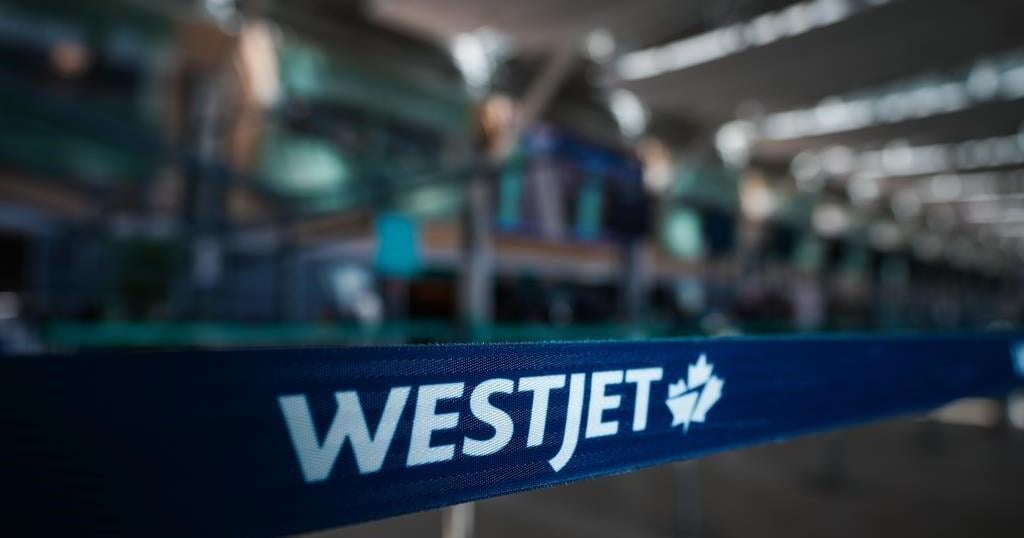A surprise strike by unionized airline mechanics at WestJet left tens of thousands of passengers wondering whether they would reach their destinations on Saturday after the airline cancelled more than 150 flights.
The Aircraft Mechanics Fraternal Association (AMFA) announced its members started to strike around 5:30 p.m. MDT Friday because the airline’s “unwillingness to negotiate with the union made the strike inevitable.”
The move came after the federal government issued a ministerial order for binding arbitration on Thursday.
The order followed two weeks of turbulent discussions with the union on a new deal.
Federal Labour Minister Seamus O’Regan issued a brief statement on Saturday morning saying he was reviewing the order by the Canada Industrial Relations Board, calling it “clearly inconsistent” with the direction he provided.”
“I will be looking at additional steps to protect the interests of the employer, the union and all Canadians travelling over this national holiday weekend,” said O’Regan.
In an update to its 680 members, the union posted a letter from the board regarding its decision in which it said that the ministerial referral “does not have the effect of suspending the right to strike or lockout.”
Calgary-based WestJet lambasted the move by the mechanics union, saying it’s “extremely outraged at these actions and will hold AMFA 100 per cent accountable for the unnecessary stress and costs incurred as a result.”
The threat of a strike seemed to recede On Thursday when WestJet said AMFA had “confirmed they will abide by the direction. Given this, a strike or lockout will not occur, and the airline will no longer proceed in cancelling flights.”
Friday’s change in position seemed to shock travellers and executives alike.
“Is my flight on Sunday in jeopardy?” asked Andrew Wheatley of Edmonton in a post to X.
“I support a union’s right to strike if it’s legal. And hopefully, they will get a good deal. But at the same time, I have to be at work Monday morning,” he added.
Sean McVeigh, a WestJet aircraft maintenance engineer picketing at Toronto Pearson International Airport’s Terminal 3 on Saturday, said the strike is an attempt to force the airline to return to a “respectful negotiation.”
McVeigh said the union regrets any inconvenience caused to passengers.
“However, the reason they (passengers) have possibly missed a flight or had to cancel is due to the reason that WestJet is not respectfully sitting down at the table and negotiating,” he said alongside roughly 20 others on the picket line.
McVeigh said the union is asking for better working conditions and a “fair and respectful wage.”
“We take on a lot of responsibility and we would just like to be appreciated financially,” he said.
Earlier this month, the mechanics voted overwhelmingly to reject a tentative deal with the Calgary-based airline, prompting WestJet to seek government intervention.
Gabor Lukacs, president of advocacy group Air Passenger Rights, said as things currently stand the union is participating in a legal strike.
“I believe that the blame here lies at the feet of management and not the union,” Lukacs said in a phone interview. “From a business management perspective they (WestJet) have not been handling the situation well and they need to face the music.”
The airline has said the flight cancellations could affect as many as 20,000 passengers and Lukacs said people need to know their rights.
He said WestJet has an obligation under the law to find stranded passengers alternate travel arrangements within 48 hours, either through another of its flights or with a competitor.
People can also ask for a refund, although Lukacs said he recommends against doing so.
“I would urge passengers not to take a refund unless they are absolutely sure they don’t want to travel,” he said. “If you take a refund then WestJet can wash its hands of its obligations to you.”
This isn’t the first time labour unrest at WestJet has affected holiday weekend travel plans. The airline averted a strike last year in the early hours of the May long weekend, but before cancelling over 230 flights and forcing thousands of people to have their travel plans changed.
This report by The Canadian Press was first published June 29, 2024.
– with files from Christopher Reynolds in Montréal
